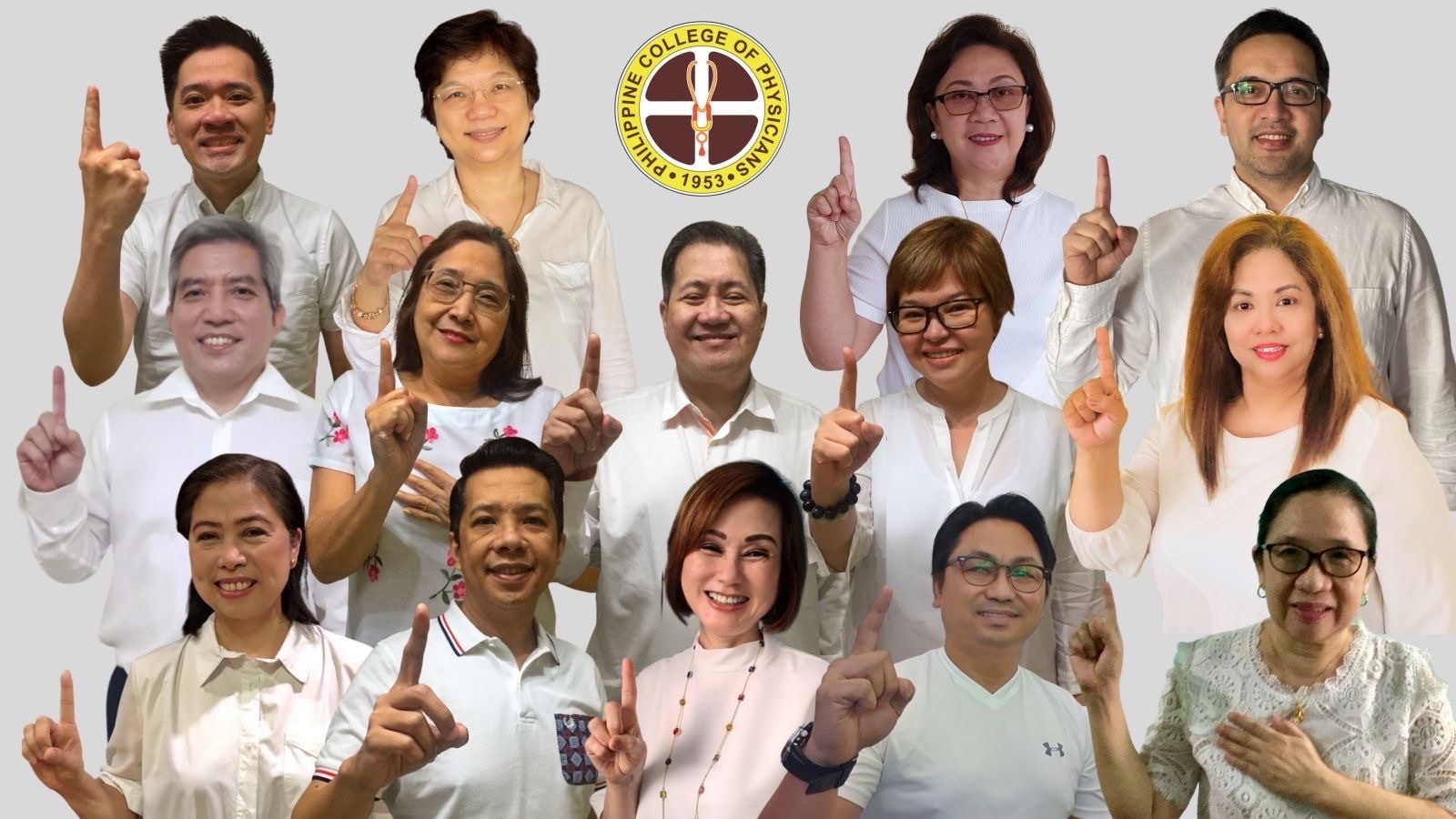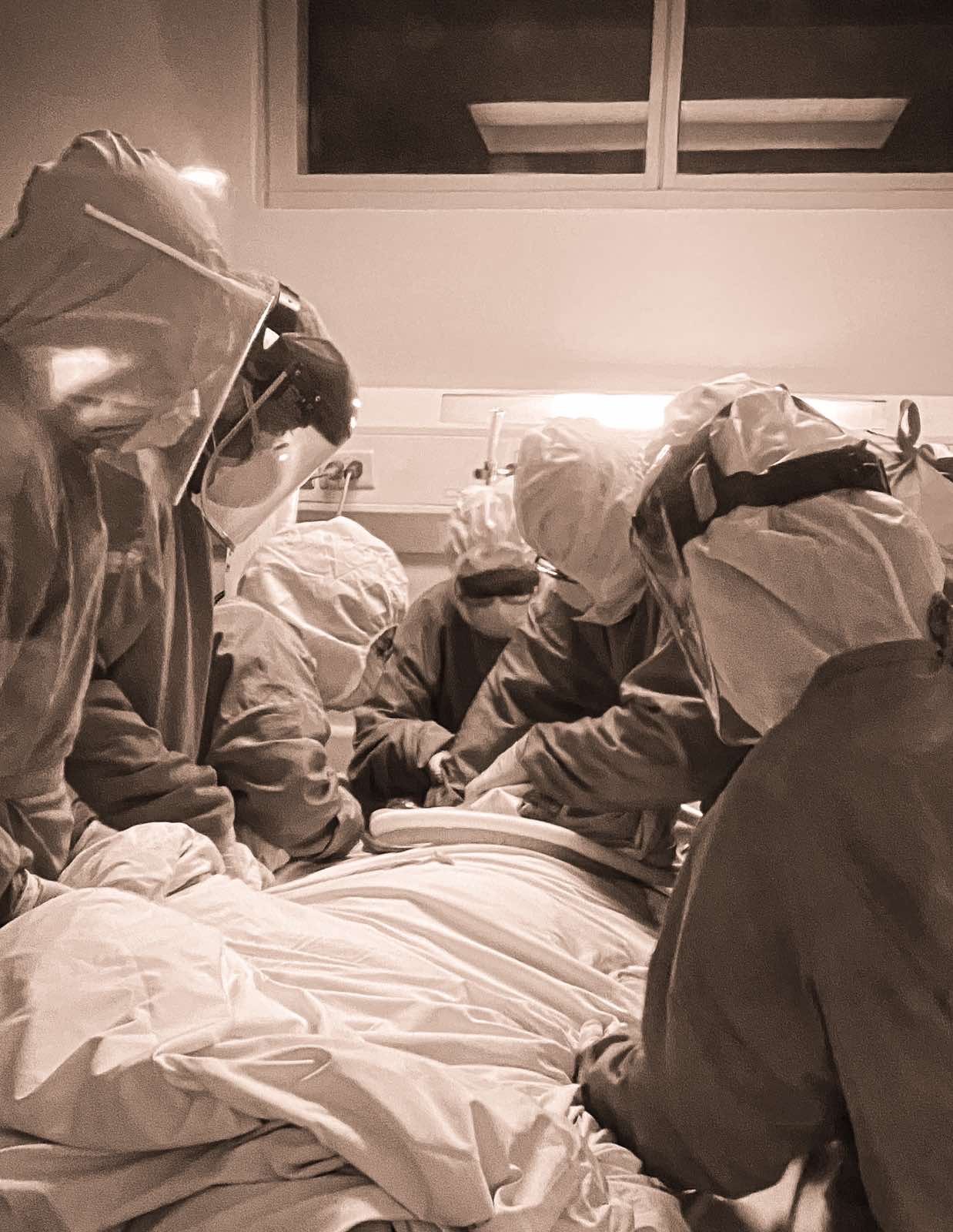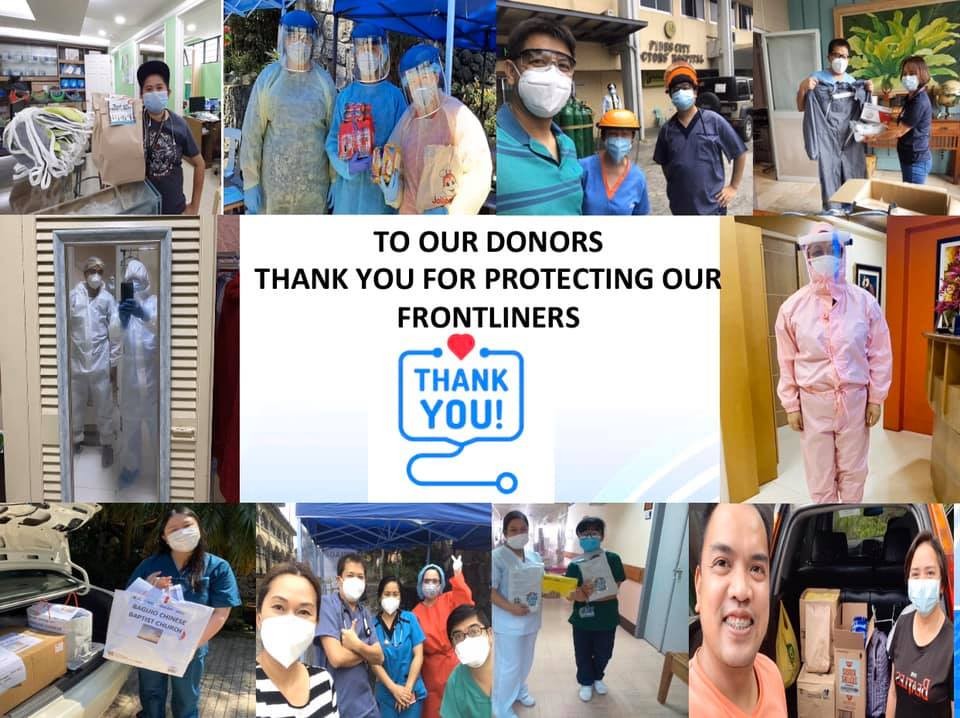To lead an organization of over 10,000 internists in the country in a time of pandemic is a whole new level of challenge for me both as a leader and a physician.

Taking on the role of president of the Philippine College of Physicians (PCP) in these trying times is a big responsibility, more so now that the voice of the medical community should be heard more than ever. At the onset of the pandemic, we have seen how our colleagues go through the tough challenge of dealing with a new disease. Many struggled to protect themselves due to lack of PPEs, adapt to technology, and incorporate teleconsultation and telemedicine in their practices—all while trying to protect themselves and their families they come home to. What’s worst and heartbreaking of all is seeing colleagues succumb to COVID-19 while in the frontlines without their families by their side.
“ We believe that for every effort one puts in protecting oneself, one is also protecting the people around one. With this in mind, we shall get through this pandemic as one. ”
As a physician and infectious diseases expert, I know how hard it is to strike a balance between the call of duty and our personal lives, especially in these times where we are battling a bigger, invisible, and more dangerous opponent. We in the medical community also have our health to think of and our families to protect. As a lymphoma patient in remission, I fall under the vulnerable sector. It is easy to say that I can just exclude myself from all this — but the desire to be one with the medical community in soldiering on this pandemic as one will always prevail. The heart of a physician will simply go to the battleground and fight alongside his colleagues. Indeed, our fight against COVID-19 is bigger than our struggles. Now is not the time to think of only ourselves and our interests. I believe every health worker knows this by heart. In fact, many health workers who contracted the coronavirus and survived it are now back in the frontlines once again, not leaving their colleagues hanging and struggling on their own.
While we greatly appreciate the gratitude and support given by the public to our frontliners, we believe that supporting our health care workers also means abiding by the minimum health standards. We will not cease to remind everyone of cough etiquette, proper wearing of face masks when necessary, regular washing of hands, and maintaining social distancing all the time. We also urge everyone to abide by the community rules and regulations while we are in this pandemic.
“ One of the immediate results of the “timeout” was the revision of some government plans to enhance response to the pandemic. One of these would be the acknowledgement of the fact that rapid antibody tests (RAT) do not play a role in the diagnosis of COVID-19 and that they pose a risk in releasing false negative patients into the community, which increases disease transmission. ”
We believe that for every effort one puts in protecting oneself, one is also protecting the people around one. With this in mind, we shall get through this pandemic as one.

Perhaps one of PCP’s major moves to promote the interest of the medical community in these trying times is when we, together with more than a hundred health organizations in the country, have to lead the call for solidarity against COVID-19 and request for a frontliners’ “timeout” to allow our government to review its strategies in dealing with the pandemic. We recognize the need to have a strategic plan to manage the rise of our COVID-19 patients and to aid and address our already tired and weary health workers. We at PCP highly appreciated President Rodrigo Roa Duterte’s quick move to return Metro Manila to modified enhanced community quarantine (MECQ) for two weeks (Aug. 4 to 18). Together with other medical organizations, we extended support to our government to enhance the existing programs and fill in the gaps through the seven-point agenda we have laid out: hospital overload, case-finding and isolation, contact tracing and quarantine, workplace outbreaks, transportation, public compliance, and social amelioration.

The MECQ has opened the doors for the healthcare workers to engage in a discussion with the relevant government offices in charge of fighting the pandemic. The period made us become more familiar with how we can properly handle the spread of the disease. It allowed us health care workers to communicate our concerns and provide our own contributions to enhance the government’s response to the pandemic.
“ Initial results affirm the findings that there is no benefit with the use of hydroxychloroquine and chloroquine, and lopinavir-ritonavir for COVID-19. As for interferon-beta and remdesivir, preliminary analysis is ongoing. Once available, results will be released and published. ”
One of the immediate results of the “timeout” was the revision of some government plans to enhance response to the pandemic. One of these would be the acknowledgement of the fact that rapid antibody tests (RAT) do not play a role in the diagnosis of COVID-19 and that they pose a risk in releasing false negative patients into the community, which increases disease transmission. In addition, there is now an intensified campaign on adherence to essential infection control measures and physical distancing.
Being one of the principal investigators for the Solidarity Trial for Treatment (spearheaded by the World Health Organization), our group is involved in disseminating new findings or breakthroughs with regards to COVID-19. Initial results affirm the findings that there is no benefit with the use of hydroxychloroquine and chloroquine, and lopinavir-ritonavir for COVID-19. As for interferon-beta and remdesivir, preliminary analysis is ongoing. Once available, results will be released and published.
As one of the esteemed medical organizations in the country and an affiliate society of the Philippine Medical Association, we welcome a whole new challenge of leading the community of internists in the country in the new normal.
Even before this pandemic, PCP has been focusing on digital transformation. And as we enter the new normal, we completely transition to the digital world.
We are fortunate to have an ongoing partnership with the Department of Health in raising awareness about COVID-19 to the medical community through a series of webinars we have started at the onset of the pandemic, reaching out to our members and the public from various regions through social media and virtual conference platforms.
PCP also recently held its 50th annual convention via virtual conference, gathering thousands of our members here and abroad, and inviting international speakers for Continuing Medical Education and training of its present and future members and staff.
Consistent with 50 years of providing meaningful education, the PCP, with the organizing committee, continues its thrust of providing a scientific event with significant topics, tackling perplexing quandaries on relevant health-related issues including COVID-19 and TB, perioperative management and handling the critically ill, usefulness of new diagnostic procedures and novel interventions for common and emerging problems, crossroads of medicine and social media, and physician well-being.
As previously planned, PCP shall incorporate more interactive sessions, panel discussions, and educational debates. Also, we will proceed with the wet clinics and teaching seminars, geared on strengthening our expertise and skills for clinical practice in the areas of immunization, infection control, and telemedicine and online consultations; enhancing our knowledge on vital issues like mental health, ethics, and climate change; intensifying our strengths on teaching, research and publication, lecture presentation, and financial literacy.
As a world-class organization of physicians, PCP’s role in the medical community does not end here. PCP shall continue to provide continuing medical education and training of its present and future members and staff; promote ethical, high-quality and cost-effective medical care; provide timely communication and advice to health agencies, governmental and non-governmental organizations; be the leading resource of education and information to all internists; put a premium to excellence, competence, and compassion.

Most of all, PCP is geared towards being one with the medical community to heal the sick, aid the needy, feed the hungry, and put service above gain.
Edited by Büm Tenorio Jr.

